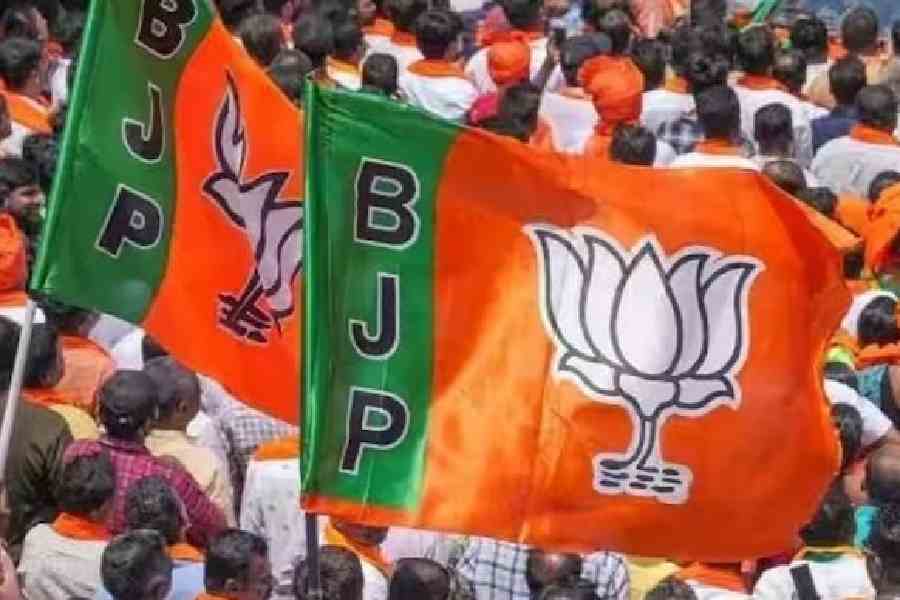Jammu and Kashmir BJP chief Ravinder Raina has said the “culprits” who allegedly tortured three Muslim tribal Gujjar men to death in Jammu’s Poonch district last week would get “big punishment”, his party trying to make a fresh outreach to the beleaguered community seen crucial to their electoral success in the Union Territory.
The army is accused of killing the three men and critically injuring several others to avenge a militant ambush that killed four soldiers in the area. The killings are seen as a setback to BJP efforts to woo Gujjars.
Raina on Thursday visited Topa Mastandara village in Poonch to offer condolences to the victim families and broke down as he wiped their tears. Ironically, the government on Monday allegedly prevented former chief minister Mehbooba Mufti from visiting the village to offer her condolences.
On Wednesday, defence minister Rajnath Singh also visited adjoining Rajouri district where he sent a terse reminder to soldiers that their obligation “was not just to defend the nation but also to win the hearts of the people”.
“I have come here to offer condolences. A painful incident happened here when three people lost their lives and others were injured. The entire country stands with the people of this area,” Raina told reporters in the village.
“The culprits who did this wrong will be punished by the law. They will get a very big punishment because the country’s law is bigger than anybody else’s. Nobody is above the law in the country and those who took the law into their own hands, which caused loss in Topa Peer (Mastandara), anybody who did the wrong, wronged big time.”
The BJP leader said he had come to the village amidst their grief to offer condolences and assure them of justice.
The BJP-led government has been trying hard to woo the Gujjars as it seeks to achieve its goal of installing a Hindu chief minister in Jammu and Kashmir.
Though Gujjars have been supportive of some of the army’s actions, the BJP has largely failed so far in cultivating a significant vote-bank among the community, which forms around 8 per cent of Jammu and Kashmir’s population — third after Kashmiris and Dogras.
In the 2014 Assembly elections, Abdul Gani Kohli, a Gujjar, was the only Muslim among the BJP’s 25 winners in the polls, which earned him a ministerial berth.
Last year, the Centre nominated Gulam Ali, a Gujjar Muslim, to the Rajya Sabha, which according to the party was the first time that a person from the community in the region had been sent to the Upper House.
Jammu and Kashmir, however, recently faced massive anti-government protests by Gujjars against the Centre’s decision to include Paharis into the Scheduled Tribe community.
Gujjars believe that Paharis, who are the majority Muslims but also include a significant number of Hindus, will encroach on their rights. Many high caste Peers (among Muslims) and Brahmins and Rajputs (among Hindus) are members of the Pahari community — another group that is top on the BJP’s priority in Jammu and Kashmir.
Paharis are the first linguistic group in the country to make it to the ST list.
Gujjars had also fiercely opposed the 2019 scrapping of Jammu and Kashmir’s special status.
The community has been seething with anger against the 2020 alleged custodial death of three Poonch youths in Shopian.
Last month, the Armed Forces Tribunal suspended the life sentence of an army captain — that was awarded by a court martial — in the fake encounter, angering the community.











